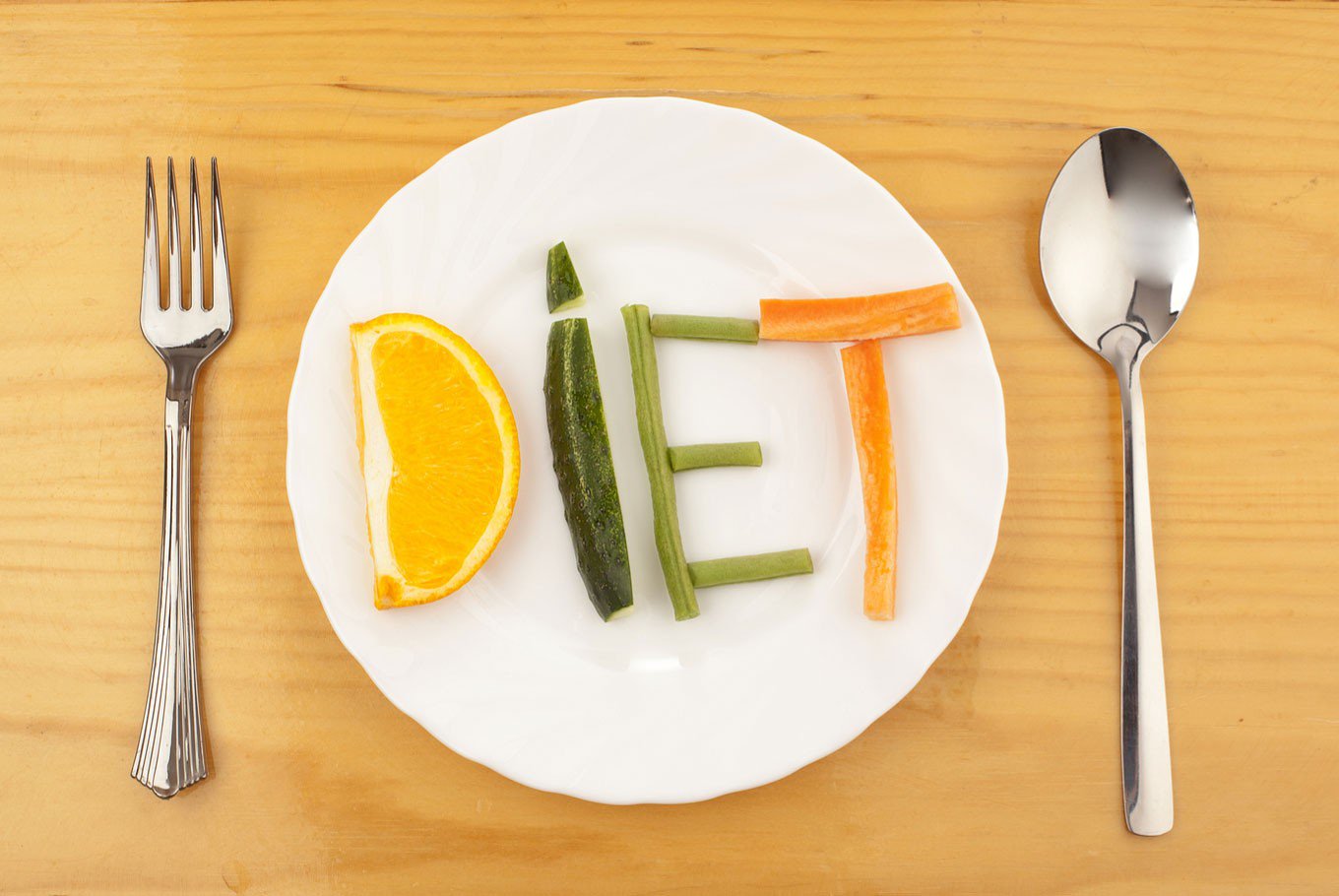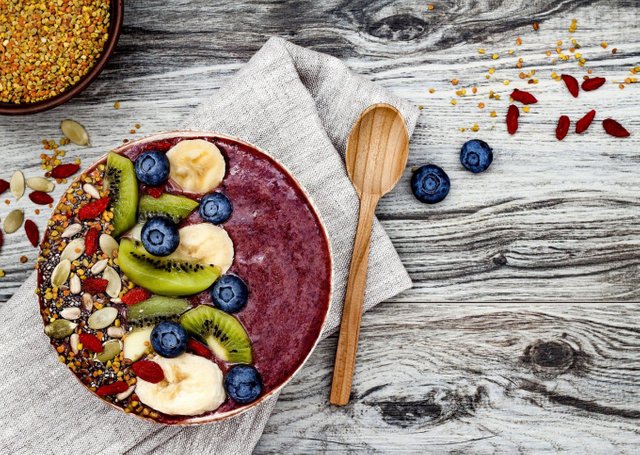Eating fat meat common mistake in ketogenic diet! # A fifth of global deaths linked to diet!

The high in fat and low in carbohydrates diet known as ketogenic diet is currently on trend. Contrary to popular assumption, the diet program does not encourage dieters to consume too much saturated fat.
Furthermore, ketogenic diet should not be practiced for a long period of time as it may cause high level of uric acid and cholesterol. Ideally, one should do ketogenic diet in less than three months or for a maximum of six months period.
Healthy obese people can also practice ketogenic diet. However, those having high level of cholesterol and uric acid are not recommended to practice it, as it may boost the level of uric acid and low-density lipoprotein (LDL).
Samsul also said that ketogenic diet may not be suitable for employees who are required to do critical thinking. Carbohydrate provides fuel to our brain, thus eliminating carbohydrate may slow down your process of thinking.
(A fifth of global deaths linked to diet)

Fewer children are dying before their fifth birthday and although humans are living longer than ever before, one in five deaths last year were linked to poor diet, researchers said Friday.
More than 1.6 million people in poor countries died in 2016 from diarrhoea caused by contaminated water and food, while another 2.4 million succumbed to lung infections that mostly could have been prevented or treated.
Another two million mothers and newborns perished due to complications at birth that rudimentary health care could have largely avoided.
AIDS and tuberculosis each claimed more than a million lives, while malaria killed over 700,000 people, according to half-a-dozen studies published jointly in The Lancet, a leading medical journal.
But trend lines have declined over the last decade for these communicable diseases.
"Hepatitis deaths can be avoided," said Raquel Peck, CEO of World Hepatitis Alliance, pointing out that no global facility exists to combat the disease and that most sufferers don't even know they have it.
The Japanese averaged 83.9 years, while citizens of the Central African Republic beat the odds if they make it past 50, a discrepancy of more than three decades between highest and lowest lifespans.
"We are facing a triad of trouble holding back many nations and communities -- obesity, conflict and mental illness, including substance abuse disorders," said Christopher Murray, director of the Institute for Health Metrics and Evaluation at the University of Washington in Seattle, which centralised and analysed the millions of data points used the studies.
Deaths attributed to conflict and terrorism -- notably in North Africa and the Middle East -- exceeded 150,000 in 2016, a jump of 140 percent compared to a decade earlier.
One bright spot was the better-than-expected health performance of several countries -- including Ethiopia, the Maldives, Nepal, Niger, Portugal and Peru -- that made outsized improvements in relation to national wealth, or GDP.
"These exemplar countries may provide information on successful policies that have helped to accelerate progress on health," said Murray.
In several cases, that headway stemmed in part from the rollout of antiretroviral treatments for HIV/AIDS.
{Five inexpensive superfoods for a health boost}

{Turmeric}
An excellent anti-inflammatory, turmeric can be used to relieve aching joints and tendinitis. It also activates the “good mood” hormone, serotonin. According to a 2014 Australian study published in the Journal of Clinical Nutrition, a gram of turmeric every morning can improve the memories of people at risk from age-related cognitive decline. The powdered root can be sprinkled on food or consumed in capsule form for a more concentrated effect. Researchers are currently studying possible uses for turmeric sourced from the Indian state of Kerala, which has the highest curcumin content, in the treatment of cancer.
{Lemons}
Rich in vitamin C, lemon juice facilitates easy digestion by stimulating the secretion of bile. Citric acid helps the stomach to better flush out fat and proteins. It is also an excellent and inexpensive liver tonic. The juice of half a lemon taken on an empty stomach every morning promotes the elimination of toxins and combats fatigue.
{Ginger}
Ginger offers an ideal means to boost the detoxifying effect of lemon juice. Fresh ginger can be grated and added to a wide range of dishes or consumed in herbal tea. For sluggish or sensitive intestines, it can have relaxing and anti-inflammatory effects. A natural antiemetic, it can be used effectively during the first months of pregnancy and in the event of travel sickness. In winter, it has the potential to boost the immune system and warm the body.
{Pomegranate}
Scientifically recognized for its anti-inflammatory, antioxidant and anti-cancer properties, according to an American study pomegranates also combat the effects of aging, especially neurological disorders and Alzheimer’s disease. Another study published in the journal Nature has reported that the red fruit protects muscle tissue and boosts stamina. Nutritionists recommend eating pomegranates fresh as opposed to in the form of juice, to get the full benefits of the fruit’s mucilage, which is rich in antioxidants and fibers.
{Algae and seaweed}
Different types of algae have different virtues: spirulina is a protein supplement for athletes, Klamath can relieve stress, and chlorella helps eliminate heavy metals. As for seaweed, dulse, wakame, nori and sea lettuce are rich in fiber and precious minerals like iodine. They are available in health food stores in the form of flakes, powders and ready-to-eat dishes.
{Five 'superfoods' that might not be so super after all}

{Acai berries}
The fruit of the South American acai palm is a big seller in organic grocery stores.
Acai berries are rich in vitamin C, but so are the majority of fruits, notably kiwi fruit and in particular golden kiwi fruit.
“The benefits of Acai berries come at a very high cost,” said nutritionist Raphaël Gruman.
Citrus fruit (clementines, lemons, oranges and grapefruit) are also rich in vitamin C, as are blackcurrants and red berries.
And vitamin C can also be found in vegetables like turnips, cabbage, peppers, fennel and spinach.
{Goji berries}
Much vaunted for their supposed health benefits, goji berries, have been over-promoted, says Gruman.
“There are other foods that are equally rich in antioxidants, for example pomegranates, that are less expensive than goji berries.
“What is more, consuming antioxidants from the widest possible range of sources is the best way to protect the body from free radicals.”
It’s also difficult to find goji berries that have not been treated with pesticides, and they can cause allergic reactions in some people.
{Kale or leaf cabbage}
According to Gruman, the trend for kale, which is hugely fashionable, is largely “fueled by marketing”.
The green vegetable “does not deserve so much media attention, even though it does have antioxidants.”
Proof of the hype for this hip cabbage can be found on the shelves of upmarket and organic grocery stores which now sell kale juice, kale soup and a growing number of other derivative products.
Many studies have shown that green vegetables – notably spinach – green beans, peppers, carrots, tomatoes and vegetables in the brassicaceae family (cabbage, broccoli, cauliflower) can help to protect against cancer.
{Pineapple}
Pineapples contain bromelain, a compound that can promote weight loss.
However, the compound is mainly found in the stem of the fruit and hardly at all in the flesh.
So eating pineapple regularly won’t help you shed any extra pounds.
And don’t forget that pineapple, which has a glycemic index of 50 as opposed to 25 for strawberries or blueberries, has quite a high sugar content.
{Mare’s milk}
Lauded for its beneficial effects on digestion, intestinal flora, and overall health, mare’s milk has yet to prove its merits.
“Expensive and frankly not very environmentally friendly to produce, there are no scientific studies that prove its benefits,” points out Gruman.
As for its nutritional qualities, mare’s milk contains plenty of lactose, very little fat and a good quantity of vitamin C.

https://www.facebook.com/herman.hanafiah.1
https://steemit.com/@alfa-good
I am a retired health care provider, married to an RN. The keto diet is being maligned to get people to keep poisoning themselves. Ketogenic metabolism is much healthier than glycogenic metabolism, every day of your life. Babies are born in ketogenic metabolism, we get them addicted to sugar as soon as they are born. I encourage you to study the videos and website of Dr. Eric Berg so that you may learn the truth about keto.
thank you for this information maam. :)
thanks!
WoW @nx4440
For someone who is struggling a lot in diet, I need this one. I think I also need a diet partner. Haha
thanks!
i am also interested to know more about this! Thank you for the content!
This post recieved an upvote from minnowpond. If you would like to recieve upvotes from minnowpond on all your posts, simply FOLLOW @minnowpond
Because wherever I am today, I still owe it to God and I owe it to two men - the Honorable Elijah Muhammad and Malcolm X and of course, two very special women, my mother and my wife.